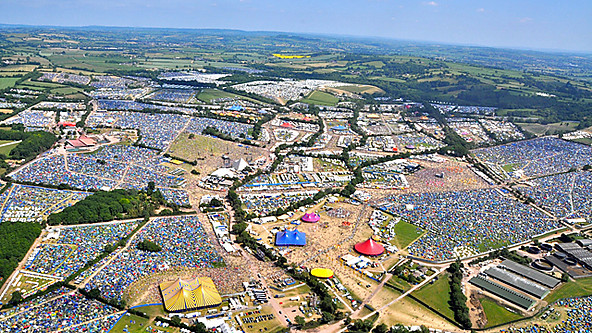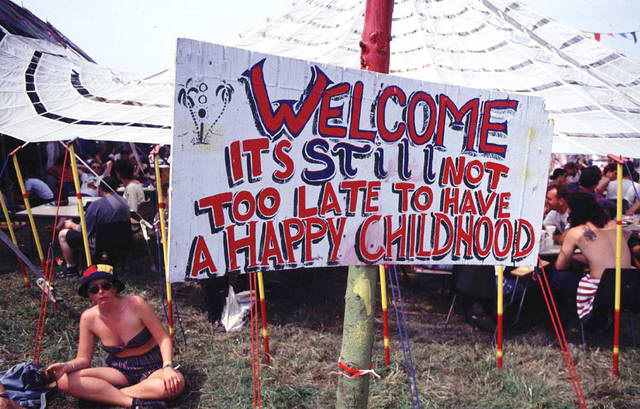
In a few days’ time, one-hundred-and-fifty-thousand people will descend on the famous Worthy Farm. That’s a city of festival goers the size of Oxford, tucked amongst the rolling hills of Somerset. It requires a feat of miraculous logistical engineering just to make it all possible, with 4,800 toilets, 3,000 megawatts of electricity and 11 million litres of water required for the weekend. But of course it’s about more than that, and there are infinitely more romantic things for us to ruminate over, ahead of the world’s most famous festival (ongoing at least) returning to action, after a summer off in 2012.
In case you live in a news vacuum with God Is In The TV as your only servant (god help you), Sir Mick Jagger and co. are playing their first Glastonbury at the ripe old age of 69. Meanwhile festival favourites such as Dizzee Rascal will stop the Pyramid stage from becoming an overly complacent site of guitar-rock-pop four pieces.
Other old-timers of note will include Elvis Costello (& The Imposters), as well as Primal Scream and Rufus Wainwright. Hyperbole is as overused as ever in music today and I would hate for enthusiasm to descend into something contrived and unadulterated on my part. But, but but. Attracting such a collection of actual real-life music icons alongside an extensive list of new talent is what has kept this massive festival going after all these years, despite controversially rising ticket prices. The list for the latter is endless (exaggeration, the list is long); Foals, The Vaccines, Peace, Ben Howard, Alt-J, Tame Impala, Bastille, The 1975, Calexico, Disclosure, Swim Deep and Miles Kane are all hot properties in the 2013 music landscape playing a part. It won’t stop them from getting criticism, but let’s be fair Richard, they’re not the only ones topping the £200 mark and it’s a real shame you had to go and blab to a national newspaper about just how much money you turned down to play the festival to so beautifully prove a point about corporate mentality taking over.
It might not be what it used to be. But at this level, in this day and age, the industrious nature of the music business and entertainment media is stapled to the acts Glastonbury will put on year after year in a bid to maintain its pulling power and relevance to modern culture. Whether that is too much to stomach for some to attend shouldn’t necessarily invalidate the swaths of other things that some will congregate together for over the weekend. In many ways, having so many young people in and amongst it because they bought a ticket to see the Arctic Monkeys, or because Dad reeled off some vague long story about sixties nostalgia that made them think the Rolling Stones were still worth catching, gives a fresh audience to those wishing to use the coming together as an arena for performing arts, political discussion and social empowerment. Never before has politics been so pertinent to our young people, and never have they been as interested or vocal. The weekend will offer the temporary inhabitants of Worthy Farm an opportunity to renew that ‘liberal lefty’ cause amid the overbearing modern context.

As the old cliché goes, it is about so much more than the music, man. It’s about forty years of history, and an unlistable list (apologies again) of extracurriculars that will pop up all over the festival site, as is touched upon by Billy Bragg‘s generously courteous repost.
But I shall finish (for now) where most discussion has started. For when the Rolling Stones pick up their guitars next Saturday, even if most of us weren’t even born at the time, we can all momentarily hark back to that special decade of cultural change, from which the Stones and Glastonbury were both born, even if in slightly divergent paths. We can raise a warm can to the success and glory of all that was once counter culture, and we can look forward too.



